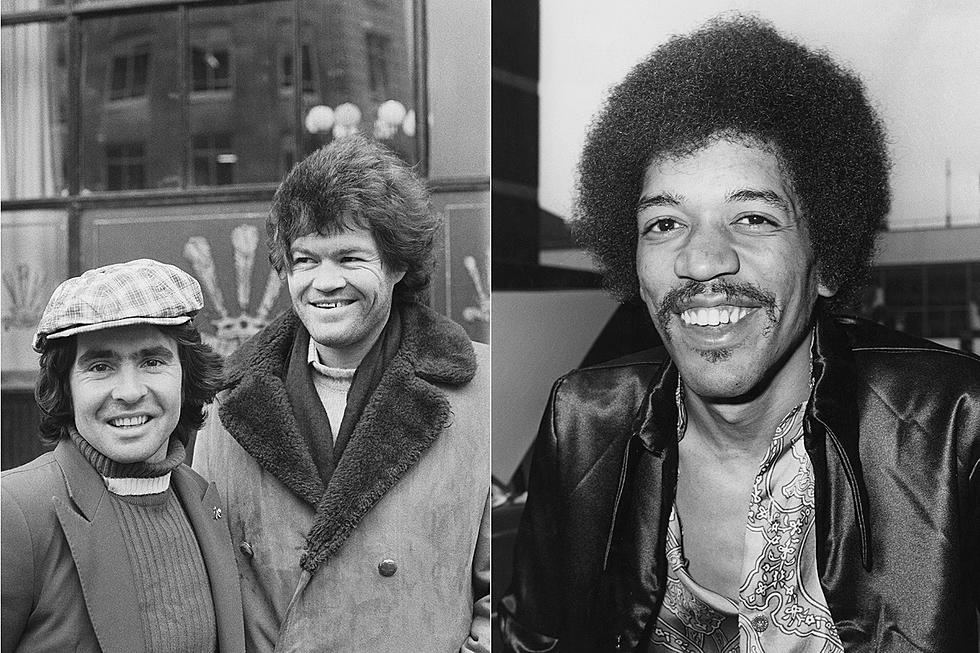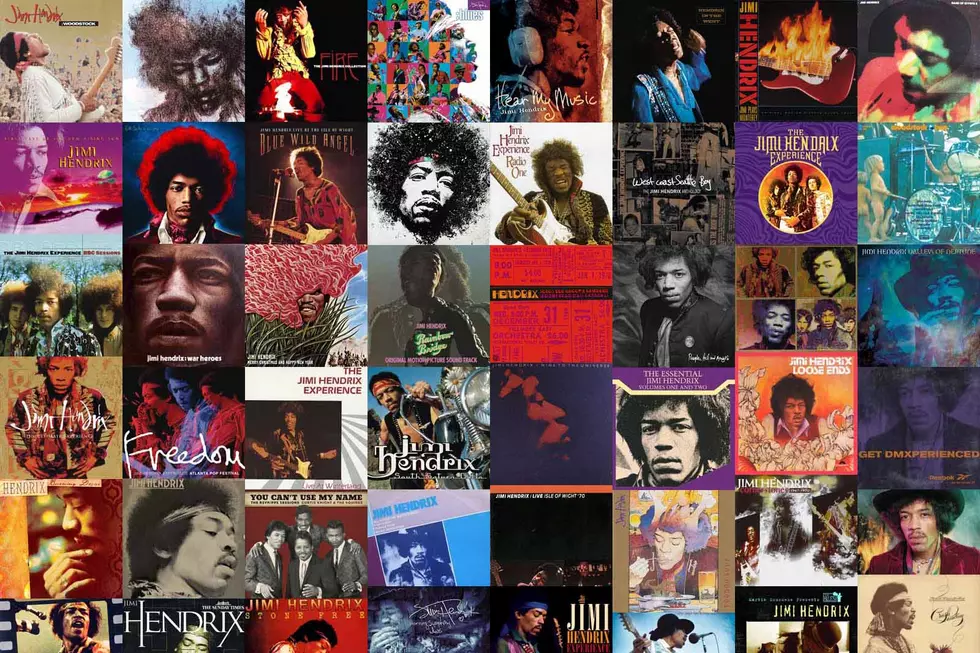
How Jimi Hendrix Turned Away From Psychedelia on ‘Band of Gypsys’
Jimi Hendrix’s professional life took a turn for the worse in the months following his triumphant August 1969 Woodstock performance.
Cost overrides plagued the construction of his new recording studio, Electric Lady. He’d have to stand trial for Canadian drug possession charges in December. He ran late on an album he owed his current label Warner Bros. Records, and he needed to deliver another album to Capitol Records to resolve a long-running legal battle regarding a contract he’d signed back in 1965 with producer Ed Chalpin.
Despite this chaos, in September Hendrix formed a new group, comprised of bassist Billy Cox (who’d performed with him at Woodstock) and drummer Buddy Miles (who’d he’d met during their early 60s chitlin’ circuit days). "We’re calling it the Band of Gypsys," Hendrix said at the time, "because that’s what we are. That’s what all musicians are. The whole world is their front porch."
This trio, Hendrix and his management decided, would meet his obligation to Capitol by recording a live album New York’s Fillmore East. While tape rolled, the Band of Gypsys would play two shows on New Year’s Eve and two more on New Year’s Day.
The resulting album, released on March 25, 1970, featured eight tracks, and offered a turn away from the psychedelic song craft that had characterized Are You Experienced? and Electric Ladyland.
The first side opened with the funky thumper "Who Knows" and concluded with what is arguably Hendrix’s finest piece of guitar work, the twelve-minute "Machine Gun." The track conjures up the soundscape of the then-raging Vietnam War, with Hendrix firing off feedback-drenched bombshells and staccato gunfire from his Stratocaster. It’s also one of Hendrix’s most political songs, something he sought to make clear during his spoken pre-song dedication to "all the soldiers that are fighting in Chicago and Milwaukee and New York, oh yes, and all the soldiers fighting in Vietnam."
After the listener flipped the LP, another distinctive element about the Band of Gypsys' musical approach fully revealed itself. Hendrix, who’d sung lead on all of his biggest hits, traded verses with Miles on "Power of Love" and even ceded lead vocal duties to his drummer on the R&B-flavored "Them Changes." From Hendrix’s perspective, this was a positive development. "Buddy’s going to do most of the singing," Hendrix explained before the album’s release, "I’d rather just play. ... Buddy has the right voice, so he’s going to the singing from now on."
But even as their self-titled album landed the Billboard Top 10 and hurtled towards gold-record status, the Band of Gypsys had already broken up. On January 28, 1970, the trio appeared at Madison Square Garden at an antiwar concert. Hendrix, who’d likely been unwittingly dosed with LSD before the show, broke down onstage after the second song, saying to the crowd, "That's what happens when earth fucks with space." Soon after, the band fell apart.
Surprisingly, Hendrix would later strike a philosophical note as he looked back on that disastrous night. "I figure that Madison Square Garden was like the end of a big long fairy tale,” he said. "It’s the best ending I could possibly have come up with. It’s like the end of a beginning."
In the decades that followed, the album’s reputation and legacy have grown by leaps and bounds, with performers like Slash, Vernon Reid and Lenny Kravitz all singing its praises. But truth be told, no testimonial can do justice to Hendrix’s revelatory fretwork, especially on "Machine Gun," which continues to define the sonic possibilities of the electric guitar.
Top 40 Blues Rock Albums
More From 103.7 The Hawk










